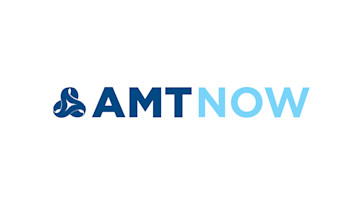There is a significant focus on manufacturing and technology in the 117th Congress and Biden administration, just as there was in the two previous administrations. But the pandemic has added a new sense of urgency to protecting our national security, economy, and jobs – areas where manufacturing is a crucial driver. The industry must take advantage of the attention to provide input and data on the issues that impact it. That is why AMT is relaunching the Manufacturing Mandate to raise awareness, increase our voice, and engage our membership in the national conversation. Our pillars remain the same: innovation, domestic capability and global competitiveness, and an educated and trained Smartforce.
Innovation
President Joe Biden elevated the role of chief science adviser in the Office of Science and Technology Policy to cabinet rank. One of the administration’s science and technology priorities is ensuring “the United States leads the world in the technologies and industries of the future that will be critical to our economic prosperity and national security, especially as we compete with China and other nations.”
Global competitiveness
The Small Business Administration’s Paycheck Protection Program (PPP) received an additional $7.25 billion in funding in the American Rescue Plan Act, the $1.9 trillion COVID-19 relief package signed by the president on March 11. The loan application period has recently been extended to May 31, 2021.
Next up on the president’s agenda: infrastructure. There are few details on the comprehensive package, but Treasury Secretary Janet Yellen said the plan would include transportation, clean energy, and education and training investments to build workers’ skill levels and boost U.S. competitiveness. She said that tax increases would be included to offset some of the cost of the package.
Rhode Island Governor Gina Raimondo was confirmed as the secretary of commerce. AMT works closely with the Commerce Department on trade promotion, export control policy, and industry data.
Supply chain – Executive orders
Strengthening American manufacturing – President Biden signed an executive order (EO) that would tighten “buy American” rules for federal purchases. The EO directs an increase in the threshold and price preferences for domestic goods before the government can buy from a non-U.S. supplier. It also creates a director of Made in America position at the Office of Management and Budget and increases oversight of waivers to domestic preference laws. The EO is part of the president’s Build Back Better campaign platform.
Supply chain resilience – There’s mounting alarm in Congress and the White House over the semiconductor shortage. In late February, Biden issued an EO on America’s supply chains, directing a 100-day review of supply chain risks in four product areas: semiconductor manufacturing and packaging, high-capacity and electric car batteries, rare earth metals, and medical supplies manufacturing. The order reflects concern among policymakers that the United States is too reliant on other countries for critical goods. Throughout the pandemic, AMT has been active on working through supply chain challenges. Visit www.IMTS.com/supplychain for data, news, and commentary on rethinking, reengaging, and reestablishing supply chains.






